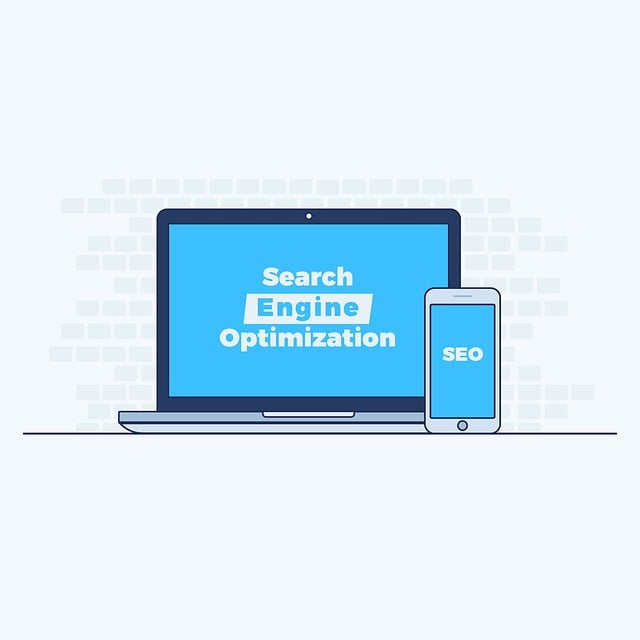Structured data is revolutionizing SEO, as evidenced by its prominent role at industry events like the Future of SEO Conference. By enhancing search engine understanding and visibility, structured data markup (e.g., JSON-LD, Schema.org) improves user experiences, click-through rates, and knowledge graphs. Conferences highlight its crucial aspects: schema selection, data enrichment, semantic understanding, and integration for e-commerce success. As algorithms focus on user intent, structured data remains a competitive advantage, with tools like Schema.org simplifying implementation.
Structured data is revolutionizing digital content, significantly enhancing search engine optimization (SEO). This article explores the evolving role of structured data in SEO, its impact on search rankings, and key benefits of implementation. We provide a comprehensive overview of types, schema selection, technical integration, and real-world success stories. Delve into these insights as we navigate the intricate world of structured data and preview trends from the Future of SEO Conference. Discover tools and resources to efficiently harness its power for optimal online visibility.
The Evolving Role of Structured Data in SEO

In today’s digital landscape, structured data plays a pivotal role in search engine optimization (SEO), and its significance continues to evolve at a rapid pace. As we look ahead to the Future of SEO Conference and beyond, understanding how structured data advances are shaping the field is paramount. Search engines like Google have increasingly been leveraging structured data to deliver more relevant, rich, and personalized results to users, thereby enhancing their search experience. This shift has prompted website owners and developers to incorporate schema markup, RDFa, and other structured data formats into their content strategies.
By providing search engines with a clear and concise understanding of the context and meaning behind web pages, structured data enables better indexing, which, in turn, leads to improved visibility on search engine results pages (SERPs). As SEO best practices continue to evolve, staying abreast of how structured data is transforming the landscape will be crucial for website owners and digital marketers alike. The Future of SEO Conference stands as a significant platform where industry experts gather to discuss these trends, share insights, and explore innovative strategies related to structured data and its impact on search engine optimization.
Understanding the Impact on Search Engine Rankings

Structured data has emerged as a powerful tool in the ever-evolving landscape of search engine optimization (SEO). Its impact on search engine rankings is profound, enabling search engines like Google to better comprehend and interpret website content. By providing clear, organized information, structured data allows search algorithms to deliver more accurate and relevant results to users. This, in turn, enhances user experience, a key factor in the Future of SEO Conference discussions.
Webmasters can utilize structured data to highlight specific elements on their pages, such as product details, recipes, or events, making it easier for search engines to index and rank them accordingly. As search engines continue to prioritize user intent and context, adopting structured data becomes increasingly vital for maintaining and improving online visibility.
Key Benefits of Implementing Structured Data Markup

Implementing structured data markup offers a multitude of benefits that not only enhance the user experience but also provide significant advantages for search engine optimization (SEO). One of the key advantages is improved visibility and discoverability in search results. Search engines, such as Google, use structured data to better understand content, allowing them to display rich snippets and enhanced knowledge graphs. This visual enhancement increases click-through rates, as users are more likely to interact with results that provide immediate, concise information.
Additionally, structured data facilitates accurate indexing by search engines, ensuring that every important detail of a webpage is captured and organised efficiently. This precision leads to more relevant search rankings, especially when combined with relevant keywords and content. As the Future of SEO Conference highlights, staying ahead in SEO involves leveraging advanced techniques like structured data markup to stay visible and competitive in an ever-evolving digital landscape.
Types of Structured Data: A Comprehensive Overview

Structured data is a critical component in today’s digital landscape, and its role in enhancing search engine optimization (SEO) has been a hot topic at recent Future of SEO Conferences. This type of data provides search engines with essential information about content, making it easier for algorithms to understand and index web pages. One of the primary types is JSON-LD (JavaScript Object Notation for Linked Data), which offers a standardized way to mark up data on webpages, ensuring it’s machine-readable. It includes structured information about various elements like products, reviews, events, and more, directly integrated into the HTML code.
Another notable format is Schema.org, a collaborative project that develops and maintains a common vocabulary for structured data across different websites. It provides a set of predefined types and properties to describe entities such as people, organizations, locations, and products, making content more semantically rich. These structured data types not only improve the accuracy of search results but also enable richer snippets, enhanced knowledge graphs, and even voice search capabilities, all of which are pivotal in shaping the future of SEO strategies.
Choosing the Right Schema for Your Website

Selecting the appropriate schema for your website is a strategic move that can significantly enhance its performance, particularly in the evolving landscape of search engine optimization (SEO). With the Future of SEO Conference highlighting the increasing importance of structured data, understanding and implementing the right schema becomes crucial. Each schema is designed to capture specific information, from product details to event schedules, allowing search engines to index your content more effectively.
For instance, choosing the Product schema for an e-commerce site ensures that each item’s unique attributes—price, availability, brand—are accurately represented. This not only improves crawlability but also enriches the user experience by displaying rich snippets in search results, enticing potential customers with detailed product information at a glance.
Technical Considerations for Seamless Integration

As structured data continues to evolve, seamless integration across platforms becomes paramount for businesses aiming to stay competitive in the dynamic digital landscape. At the forefront of this shift is the Future of SEO Conference, where industry experts delve into the technical considerations shaping the future of search engine optimization. Key topics include schema markup implementation, data enrichment strategies, and semantic understanding—all vital components for enriching content with meaningful context and boosting visibility on modern search engines.
Attendees at these conferences gain valuable insights into best practices for structured data formatting, ensuring their websites can effectively communicate with search algorithms. By addressing intricacies like data normalization, entity recognition, and relationship mapping, businesses enable search engines to interpret their content accurately, resulting in improved rankings, enhanced user experiences, and ultimately, increased online visibility during the Future of SEO Conference and beyond.
Real-World Examples of Structured Data Success

In today’s digital landscape, structured data is revolutionizing how information is organized and consumed. Real-world examples highlight its immense potential. For instance, at the Future of SEO Conference, speakers showcased how structured data has enhanced search engine optimization (SEO) strategies. By providing clear, machine-readable data, websites are ranking higher in search results, leading to increased visibility and traffic.
E-commerce platforms like Amazon have also embraced structured data. They use it to deliver detailed product information, making searches more accurate and relevant. This not only improves user experience but also boosts sales by presenting customers with tailored recommendations. These success stories demonstrate that structured data is not just a trend but an essential tool for staying competitive in the ever-evolving digital world.
The Future: Trends and Predictions in SEO Conference

The future of SEO is a hot topic at conferences worldwide, where industry experts gather to share insights and predict trends. As search algorithms become increasingly sophisticated, understanding user intent and delivering relevant content will remain paramount. Advanced structured data techniques are expected to play a pivotal role in shaping the next generation of search results, enhancing user experiences, and driving better engagement.
Conferences often highlight emerging trends such as voice search optimization, with focus on long-tail keywords and conversational language, as well as the integration of AI and machine learning for personalized content recommendations. Additionally, the importance of structured data markup, including schema.org vocabulary, is expected to grow, enabling search engines to better understand complex information and display rich snippets, ultimately improving click-through rates and user satisfaction.
Tools and Resources for Efficient Implementation

As structured data continues to evolve, a plethora of tools and resources emerge to streamline its implementation. These range from user-friendly markup generators to complex analytics platforms, all designed to help content creators and marketers harness the power of structured data effectively. For instance, Schema.org offers predefined vocabulary and types, making it easier for webmasters to mark up their content without delving into intricate code. Additionally, Google’s Search Console provides valuable insights into how search engines interpret structured data, enabling optimizations based on real-world performance.
The Future of SEO Conference, an industry gathering that predicts trends in search engine optimization, often highlights the latest advancements in structured data. These events offer a platform for experts to share best practices and innovative techniques. By staying updated with these tools and attending such conferences, businesses can ensure they leverage structured data optimally, remaining competitive in the ever-changing digital landscape.
